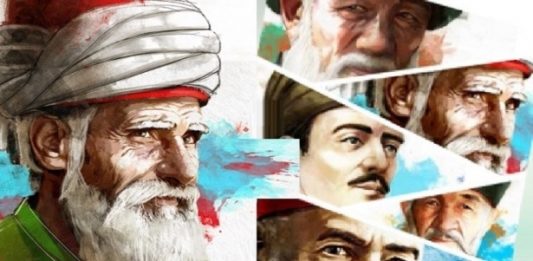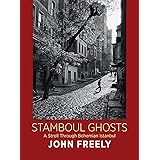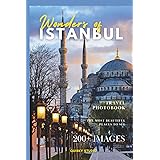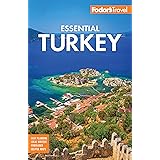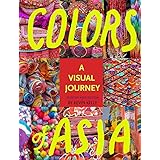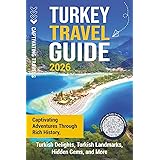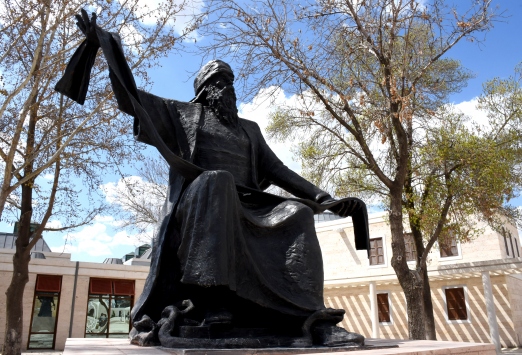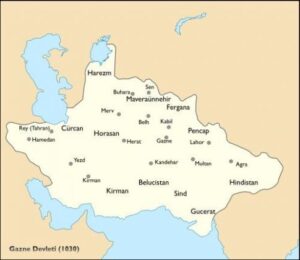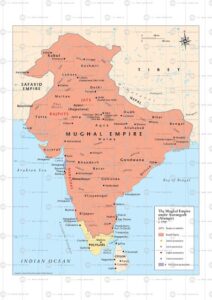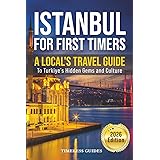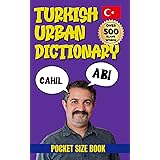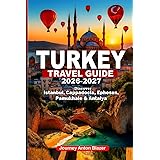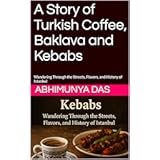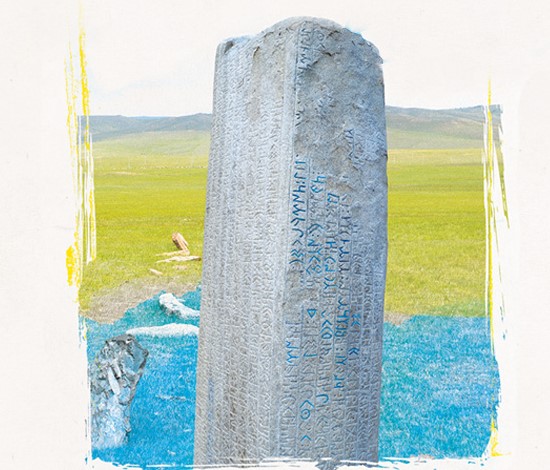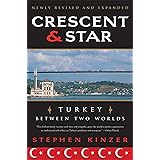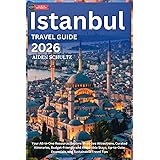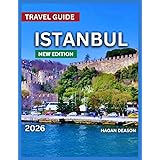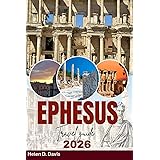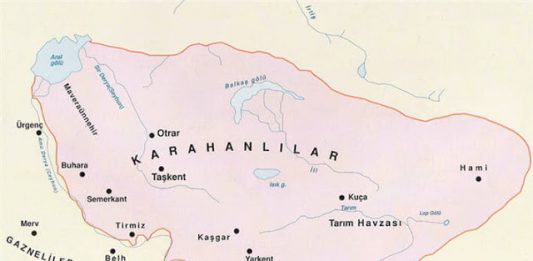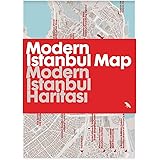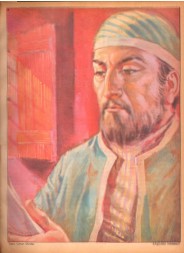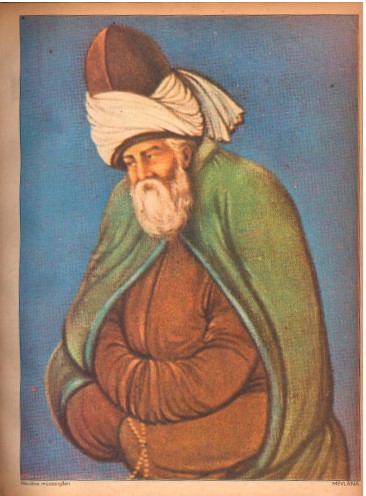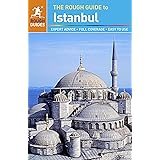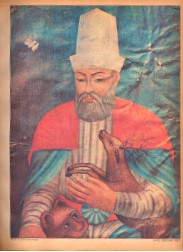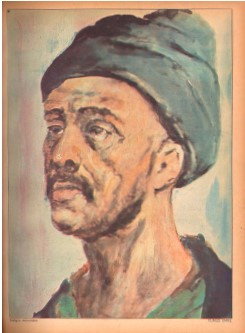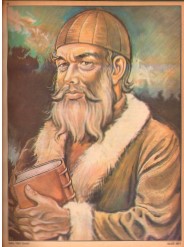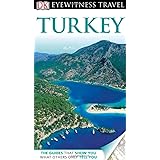Starting with Hilmi Ziya Ülken’s 1933 book History of Contemplation, our most studied thinkers are over 100 in each of İhsan Fazlıoğlu’s and Fatih Şeker’s three books.
Our 3 Thinkers most studied in the aforementioned books;
Ghazali,
Ibn Sina and
Taşköprülüzade
HİLMİ ZİYA ÜLKEN:
İHSAN FAZLIOĞLU
- Kayıp Halka
- Derin Yapı
- Nazari Ufuk
FATİH ŞEKER:
- Osmanlı Entelektüel Geleneği,
- Türk Dini Düşüncesinin Teşekkül Devri
- Türk Entelektüel Tarihinin Teşekkül Devri
DÜŞÜNÜRLERİMİZ:
A
Abdulali Bircendi İhsan Fazlıoğlu, Kayıp Halka
Ahmed Cevdet Paşa İhsan Fazlıoğlu, Kayıp Halka
Ahmet Yaşar Ocak Fatih Şeker, Türk Dini Düşüncesinin Teşekkül Devri
Ali Kuşçu İhsan Fazlıoğlu, Kayıp Halka İhsan Fazlıoğlu, Nazari Ufuk
Ali Sedad İhsan Fazlıoğlu, Kayıp Halka
Ankaravi Fatih Şeker, Osmanlı Entelektüel Geleneği
Aşık Paşa Fatih Şeker, Osmanlı Entelektüel Geleneği
Aşık Paşazade Fatih Şeker, Osmanlı Entelektüel Geleneği
Ayverdi, Samiha Fatih Şeker, Osmanlı Entelektüel Geleneği
B
Bahaeddin Veled Hilmi Ziya Ülken, Türk Tefekkür Tarihi
Batlamyus İhsan Fazlıoğlu, Derin Yapı
Beydavi Fatih Şeker, Osmanlı Entelektüel Geleneği
Bıçak, Ayhan Fatih Şeker, Osmanlı Entelektüel Geleneği
Birgivi Fatih Şeker, Osmanlı Entelektüel Geleneği
Bosnevi Fatih Şeker, Osmanlı Entelektüel Geleneği
Bursevi Fatih Şeker, Osmanlı Entelektüel Geleneği
Bursevi İsmail Hakkı Fatih Şeker, Türk Dini Düşüncesinin Teşekkül Devri
C
Celaluddin Devvani İhsan Fazlıoğlu, Kayıp Halka
Cevdet Paşa Fatih Şeker, Osmanlı Entelektüel Geleneği Fatih Şeker, Türk Dini Düşüncesinin Teşekkül Devri
Cürcani Fatih Şeker, Osmanlı Entelektüel Geleneği
Çağmini İhsan Fazlıoğlu, Derin Yapı
D
Davud el-Kayseri (Davud Kayseri, Kayseri) İhsan Fazlıoğlu, Nazari Ufuk İhsan Fazlıoğlu, Kayıp Halka Fatih Şeker, Osmanlı Entelektüel Geleneği
Dede Korkud Fatih Şeker, Türk Dini Düşüncesinin Teşekkül Devri
Devvani İhsan Fazlıoğlu, Kayıp Halka
E
Ebu Hanife Fatih Şeker, Türk Dini Düşüncesinin Teşekkül Devri
Ebussuud Efendi Fatih Şeker, Osmanlı Entelektüel Geleneği
Elmalılı Hamdi Efendi Fatih Şeker, Türk Dini Düşüncesinin Teşekkül Devri
Eshenkulova İhsan Fazlıoğlu, Derin Yapı
Esiruddin Ebheri İhsan Fazlıoğlu, Kayıp Halka
Eşrefoğlu Rumi Fatih Şeker, Osmanlı Entelektüel Geleneği
Evliya Çelebi Fatih Şeker, Osmanlı Entelektüel Geleneği
F
Fahruddin Razi İhsan Fazlıoğlu, Kayıp Halka Fatih Şeker, Osmanlı Entelektüel Geleneği
Farabi: Hilmi Ziya Ülken, Türk Tefekkür Tarihi
Feridüddin Attar Hilmi Ziya Ülken, Türk Tefekkür Tarihi
Fethullah Şirvani İhsan Fazlıoğlu, Derin Yapı
Fuzuli Fatih Şeker, Osmanlı Entelektüel Geleneği
G
Gazzali Hilmi Ziya Ülken, Türk Tefekkür Tarihi İhsan Fazlıoğlu, Kayıp Halka Fatih Şeker, Osmanlı Entelektüel Geleneği Fatih Şeker, Türk Dini Düşüncesinin Teşekkül Devri Fatih Şeker, Türk Entelektüel Tarihinin Teşekkül Devri
Gelenbevi Fatih Şeker, Osmanlı Entelektüel Geleneği İhsan Fazlıoğlu, Kayıp Halka İhsan Fazlıoğlu, Kayıp Halka
Gelibolulu Mustafa Ali Fatih Şeker, Osmanlı Entelektüel Geleneği
Güngör, Erol Fatih Şeker, Türk Dini Düşüncesinin Teşekkül Devri
H
Hacı Bektaş Hilmi Ziya Ülken, Türk Tefekkür Tarihi
Hallac Hilmi Ziya Ülken, Türk Tefekkür Tarihi
Haraki İhsan Fazlıoğlu, Derin Yapı
Hızır Beg Fatih Şeker, Osmanlı Entelektüel Geleneği
Hoca Ahmed Yesevi Hilmi Ziya Ülken, Türk Tefekkür Tarihi
Hoca Sadeddin Efendi Fatih Şeker, Osmanlı Entelektüel Geleneği
Hocazade İhsan Fazlıoğlu, Kayıp Halka İhsan Fazlıoğlu, Nazari Ufuk Fatih Şeker, Osmanlı Entelektüel Geleneği
Hüseyin Rıfkı Tamani İhsan Fazlıoğlu, Kayıp Halka
İ
İbn Arabi İhsan Fazlıoğlu, Kayıp Halka
İbn Bibi İhsan Fazlıoğlu, Kayıp Halka
İbn Haldun İhsan Fazlıoğlu, Kayıp Halka
İbn Heysem İhsan Fazlıoğlu, Kayıp Halka İhsan Fazlıoğlu, Derin Yapı
İbn Rüşd İhsan Fazlıoğlu, Kayıp Halka
İbn Sertak İhsan Fazlıoğlu, Kayıp Halka
İbn Sina İhsan Fazlıoğlu, Kayıp Halka İhsan Fazlıoğlu, Nazari Ufuk Fatih Şeker, Osmanlı Entelektüel Geleneği Fatih Şeker, Türk Dini Düşüncesinin Teşekkül Devri Fatih Şeker, Türk Entelektüel Tarihinin Teşekkül Devri Hilmi Ziya Ülken, Türk Tefekkür Tarihi
İbni Kemal Fatih Şeker, Osmanlı Entelektüel Geleneği
İbnülemin Mahmud Kemal İnal Fatih Şeker, Osmanlı Entelektüel Geleneği
İmamı Azam Fatih Şeker, Türk Dini Düşüncesinin Teşekkül Devri
İnan, Abdülkadir Fatih Şeker, Türk Dini Düşüncesinin Teşekkül Devri
İshak Hoca İhsan Fazlıoğlu, Kayıp Halka
İsmail Hakkı Bursevi Fatih Şeker, Osmanlı Entelektüel Geleneği
İzmirli İsmail Hakkı Fatih Şeker, Türk Dini Düşüncesinin Teşekkül Devri Fatih Şeker, Türk Entelektüel Tarihinin Teşekkül Devri
K
Kadı Beydavi Fatih Şeker, Osmanlı Entelektüel Geleneği
Kadızade İhsan Fazlıoğlu, Derin Yapı
Kaşgarlı Mahmud Fatih Şeker, Türk Dini Düşüncesinin Teşekkül Devri
Katip Çelebi İhsan Fazlıoğlu, Kayıp Halka Fatih Şeker, Osmanlı Entelektüel Geleneği Fatih Şeker, Türk Dini Düşüncesinin Teşekkül Devri
Kemal Paşazade Fatih Şeker, Osmanlı Entelektüel Geleneği
Kınalızade Fatih Şeker, Osmanlı Entelektüel Geleneği
Koçi Bey Fatih Şeker, Osmanlı Entelektüel Geleneği
Konevi Fatih Şeker, Osmanlı Entelektüel Geleneği
Köprülü, Fuad Fatih Şeker, Türk Dini Düşüncesinin Teşekkül Devri Fatih Şeker, Osmanlı Entelektüel Geleneği Hilmi Ziya Ülken, Türk Tefekkür Tarihi
Kutbuddin Razi İhsan Fazlıoğlu, Kayıp Halka
Kutbuddin Şirazi İhsan Fazlıoğlu, Kayıp Halka İhsan Fazlıoğlu, Derin Yapı İhsan Fazlıoğlu, Nazari Ufuk
L
Lütfi Paşa Fatih Şeker, Osmanlı Entelektüel Geleneği
M
Maturidi Fatih Şeker, Osmanlı Entelektüel Geleneği Fatih Şeker, Türk Dini Düşüncesinin Teşekkül Devri Fatih Şeker, Türk Entelektüel Tarihinin Teşekkül Devri
Mehmed Fenari İhsan Fazlıoğlu, Kayıp Halka
Mevlana Hilmi Ziya Ülken, Türk Tefekkür Tarihi Fatih Şeker, Osmanlı Entelektüel Geleneği Fatih Şeker, Türk Dini Düşüncesinin Teşekkül Devri Fatih Şeker, Türk Entelektüel Tarihinin Teşekkül Devri
Mirim Çelebi İhsan Fazlıoğlu, Kayıp Halka
Molla Fenari İhsan Fazlıoğlu, Kayıp Halka Fatih Şeker, Osmanlı Entelektüel Geleneği
Molla Hüsrev İhsan Fazlıoğlu, Nazari Ufuk
Molla Lütfi Fatih Şeker, Osmanlı Entelektüel Geleneği
Muslihuddin Lari İhsan Fazlıoğlu, Derin Yapı
Mustafa Ali Fatih Şeker, Osmanlı Entelektüel Geleneği Fatih Şeker, Türk Dini Düşüncesinin Teşekkül Devri
Mustafa Sabri Fatih Şeker, Türk Dini Düşüncesinin Teşekkül Devri
Mustafa Sıdkı İhsan Fazlıoğlu, Kayıp Halka
Müneccimbaşı Ahmed Dede İhsan Fazlıoğlu, Kayıp Halka
N
Naima Fatih Şeker, Osmanlı Entelektüel Geleneği
Namık Kemal Fatih Şeker, Osmanlı Entelektüel Geleneği
Nasıreddin Tusi Hilmi Ziya Ülken, Türk Tefekkür Tarihi İhsan Fazlıoğlu, Kayıp Halka İhsan Fazlıoğlu, Nazari Ufuk Fatih Şeker, Osmanlı Entelektüel Geleneği
Necmeddin Kübra Hilmi Ziya Ülken, Türk Tefekkür Tarihi
Nisaburi İhsan Fazlıoğlu, Derin Yapı
Niyazi i Mısri Fatih Şeker, Osmanlı Entelektüel Geleneği
Nizamuddin Nisaburi İhsan Fazlıoğlu, Derin Yapı
P
Peçevi Fatih Şeker, Osmanlı Entelektüel Geleneği
R
Ramazan Efendi İhsan Fazlıoğlu, Kayıp Halka
Razi Fatih Şeker, Türk Entelektüel Tarihinin Teşekkül Devri
Sadrettin Konevi Hilmi Ziya Ülken, Türk Tefekkür Tarihi İhsan Fazlıoğlu, Kayıp Halka İhsan Fazlıoğlu, Derin Yapı
S
Salih Seki İhsan Fazlıoğlu, Kayıp Halka
Seyid Şerif Cürcani Hilmi Ziya Ülken, Türk Tefekkür Tarihi
Seyyid Ali Paşa İhsan Fazlıoğlu, Kayıp Halka
Seyyid Şerif İhsan Fazlıoğlu, Derin Yapı İhsan Fazlıoğlu, Nazari Ufuk
Seyyid Şerif Cürcani İhsan Fazlıoğlu, Kayıp Halka
Siracuddin Urmevi İhsan Fazlıoğlu, Kayıp Halka
Sühreverdi Hilmi Ziya Ülken, Türk Tefekkür Tarihi İhsan Fazlıoğlu, Derin Yapı
Ş
Şemsuddin Semerkandi İhsan Fazlıoğlu, Kayıp Halka
Şeyh Bedreddin Fatih Şeker, Osmanlı Entelektüel Geleneği
Şihabuddin Suhreverdi İhsan Fazlıoğlu, Kayıp Halka
T
Taftazani İhsan Fazlıoğlu, Derin Yapı İhsan Fazlıoğlu, Nazari Ufuk Fatih Şeker, Türk Entelektüel Tarihinin Teşekkül Devri
Takiyuddin Rasid İhsan Fazlıoğlu, Derin Yapı
Tanpınar A.Hamdi Fatih Şeker, Osmanlı Entelektüel Geleneği
Tanpınar, Ahmet Hamdi Fatih Şeker, Türk Dini Düşüncesinin Teşekkül Devri
Taşköprülüzade İhsan Fazlıoğlu, Derin Yapı İhsan Fazlıoğlu, Nazari Ufuk İhsan Fazlıoğlu, Kayıp Halka Fatih Şeker, Osmanlı Entelektüel Geleneği Fatih Şeker, Türk Dini Düşüncesinin Teşekkül Devri Fatih Şeker, Türk Entelektüel Tarihinin Teşekkül Devri
Teftazani Fatih Şeker, Osmanlı Entelektüel Geleneği Fatih Şeker, Türk Dini Düşüncesinin Teşekkül Devri
Tehanevi İhsan Fazlıoğlu, Derin Yapı
Tursun Beg Fatih Şeker, Osmanlı Entelektüel Geleneği
Tusi İhsan Fazlıoğlu, Kayıp Halka
Tusi, Alaeddin Fatih Şeker, Osmanlı Entelektüel Geleneği
U
Uluğ Bey İhsan Fazlıoğlu, Derin Yapı
Ü
Ülken, Hilmi Ziya Fatih Şeker, Türk Dini Düşüncesinin Teşekkül Devri
Y
Yahya Kemal Fatih Şeker, Osmanlı Entelektüel Geleneği Fatih Şeker, Türk Dini Düşüncesinin Teşekkül Devri
Yazıcıoğlu Fatih Şeker, Osmanlı Entelektüel Geleneği
Yunus Emre Fatih Şeker, Osmanlı Entelektüel Geleneği Fatih Şeker, Türk Dini Düşüncesinin Teşekkül Devri
Yusuf Has Hacib Fatih Şeker, Osmanlı Entelektüel Geleneği Fatih Şeker, Türk Dini Düşüncesinin Teşekkül Devri Fatih Şeker, Türk Entelektüel Tarihinin Teşekkül Devri

